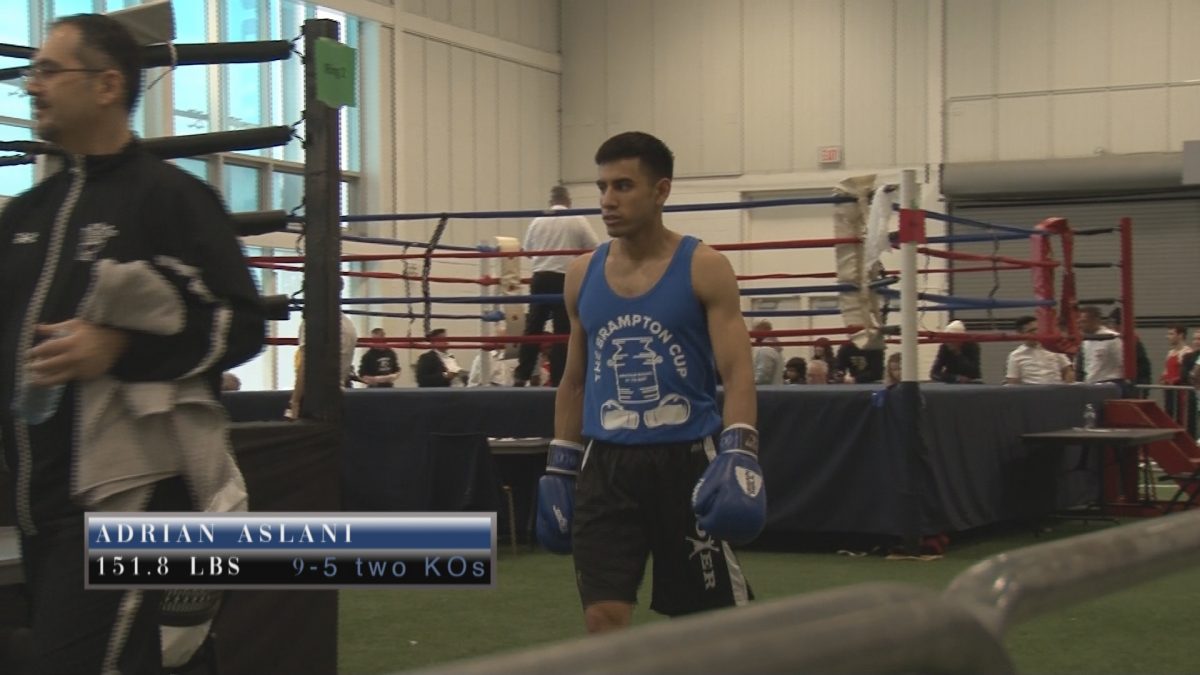“The political tensions are higher, even here in Iran.” Adrian says. “It is a bit worrying but we’re hoping for the best. We’re here to see our family and to try to plan what’s best for us.”
Adrian sits on the fifth floor of an apartment in Istanbul that his family has rented from Airbnb. They arrived early in the morning last Tuesday. The Airbnb sits at the top of a long spiral staircase. There is no elevator but through the window there’s a dramatic view of the city’s twisted streets and ornate buildings. Adrian, his parents and his brother have come to see their cousins for the first time in a year. They are worried this will be the last time they see them for a long time.
Adrian’s cousins are Iranian citizens. In the wake of escalating tensions between their home country and the West, they’re facing the possibility of being cut off from relatives around the world. Hosting guests from the West could cause problems for Adrian’s cousins, so the two sides of the family agreed to meet in nearby Turkey.
“The religious government there can be really messed up,” says Adrian. “Very strict, and authoritarian.”
Turkey has diplomatic relations with both Iran and Canada. Iran has no diplomacy with Canada. Iran does not recognize dual citizenship. A Canadian running into trouble in the country would have no access to consular services and little by way of options accessing help from their government.
Since the US military killed Iranian General Qasem Soleimani, the Canadian government has issued an advisory against travelling to Iran. Although this is not technically a ‘travel ban,’ Canadians are warned not to travel to Iran unless it is absolutely essential because of the risk of ‘terrorist acts and kidnapping.’ The country now has the same travel classification as Iraq, Syria and Afghanistan; countries with armed conflicts within their borders.
Adrian’s father, Mehdi, defected from Iran to Turkey at the age of 18. He fled the country because of a lack of opportunity and the strict way of life that Iranians had to live during the cultural revolution in the 1980s. He came to Canada at 21. He started a family. That was decades ago, and Mehdi’s son, Adrian, is now 23 himself. Adrian works as a mechanic. He is a successful amateur boxer and is thinking of enrolling in nursing school someday.

The Aslani family loves their life in Canada. Still, they value the connection they feel to Iran. They also empathize with their loved ones who have stayed behind.
“They still find it a pretty normal way of life.” Adrian said. “It’s either stay at home or go to Turkey. Staying at home, I guess, is a little bit scary.”
There are hundreds of thousands of Iranians in Canada. Things in Iran have been tense in 2020. The downing of a Ukrainian plane, which carried 57 Canadians, led to fiery statements from both Prime Minister Justin Trudeau and US President Donald Trump. Although negotiations over the crash’s investigation are progressing, the situation is volatile. An airplane crashed on the Istanbul runway hours before Adrian landed in the city. This one was caused by mechanical malfunction. But it felt eerily similar.
The US and Canada have imposed sanctions against Iran. If things get any frostier between the three countries, families like the Aslanis may lose all contact with their relatives.
When Adrian told his aunt about his boxing career, she wasn’t surprised. She worked as a personal trainer in Iran until a back injury sidelined her indefinitely. She believes toughness runs in the family.
“You are champion, you are lion king,” she said. The name Aslani is common in Iran; it means lion.
The Aslanis are taking their time to enjoy Istanbul together. They have celebrated a belated birthday and travelled across the city in the subway. Adrian is jogging in the streets, exploring and keeping to his training.
Adrian and his family are worried but are trying to enjoy their time together. Adrian knows that these relationships are important. His father has always taught him that.
“No one is going to have your back like family,” Mehdi says. ‘They will always be there for you.”
